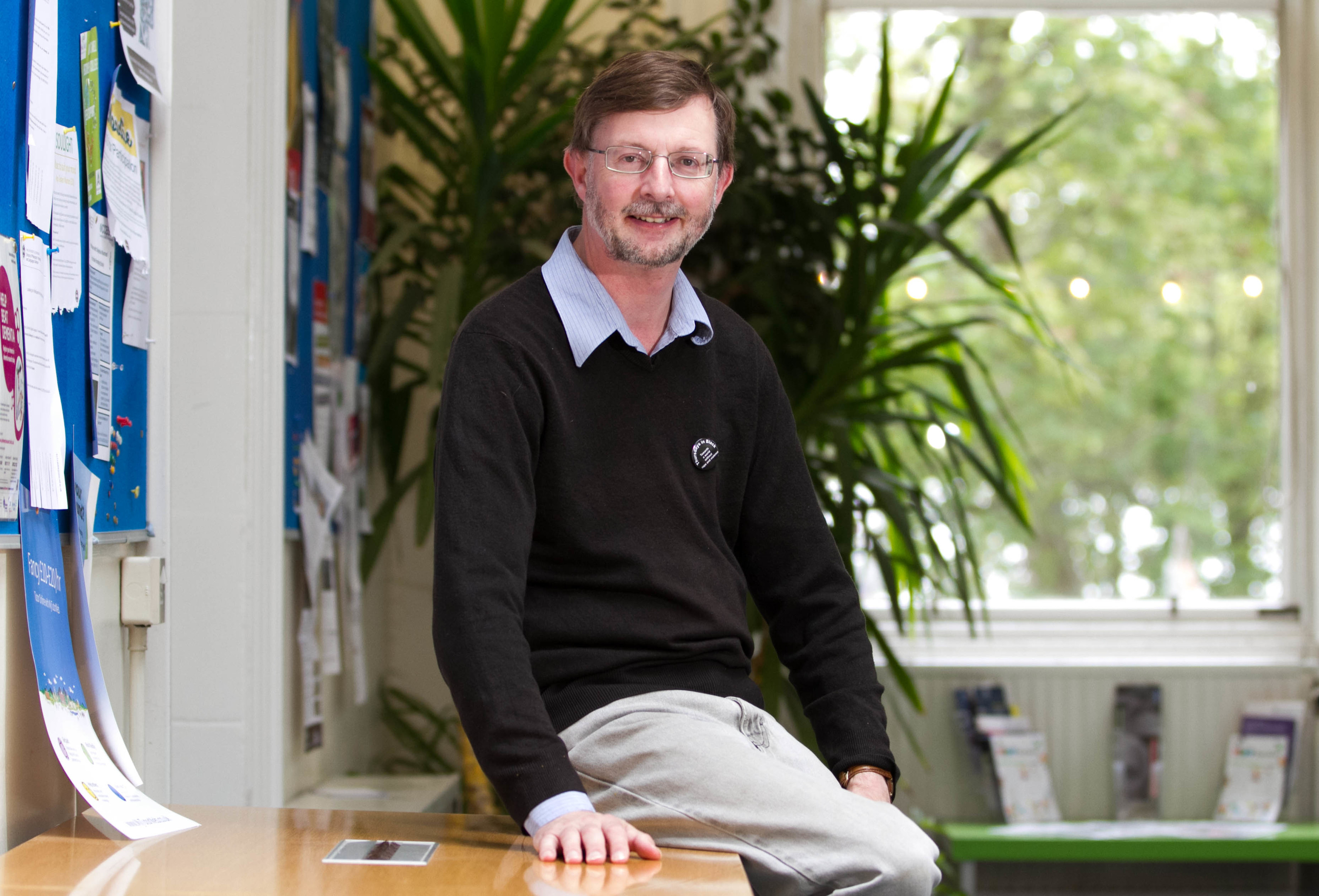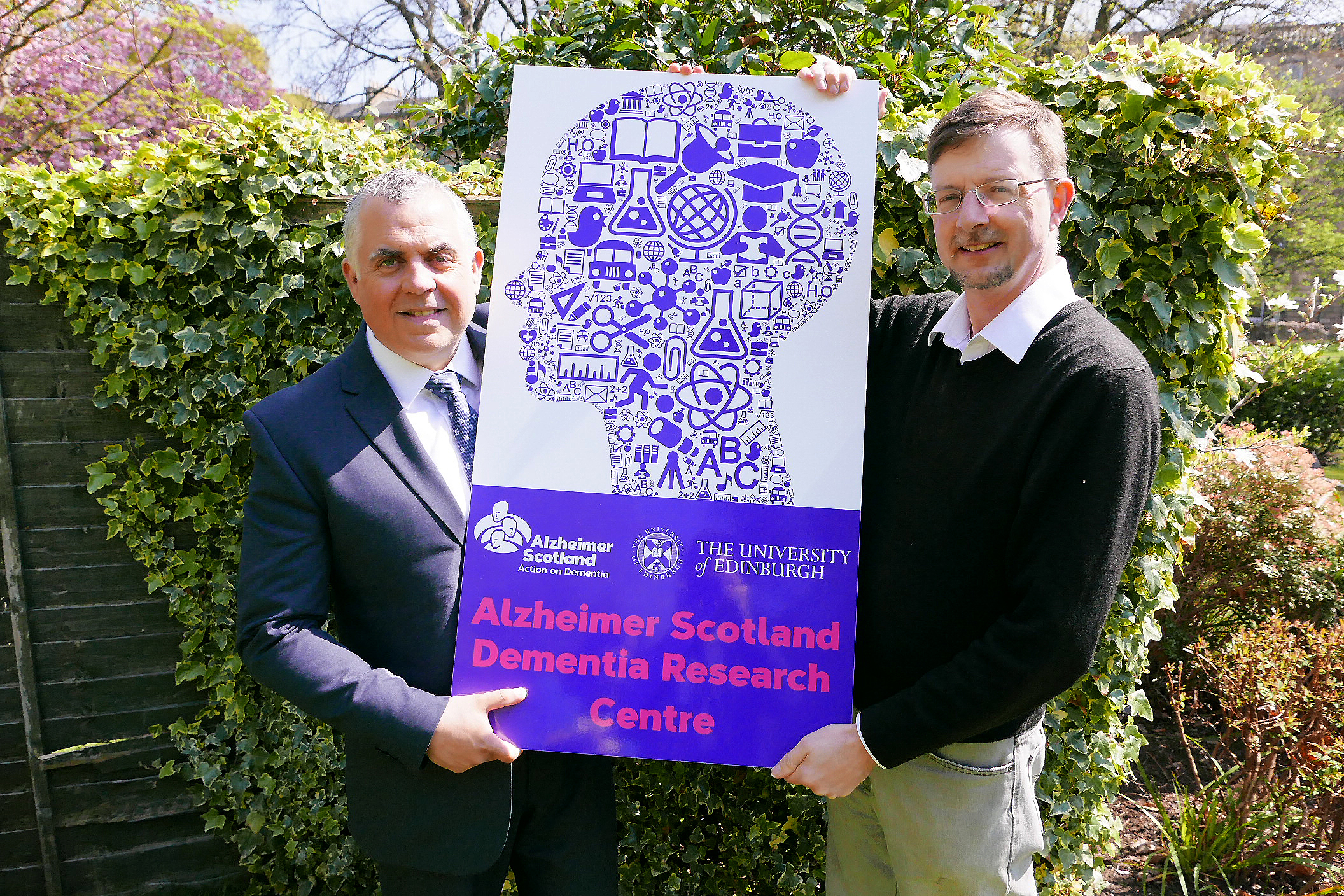
A PROFESSOR who has spent 30 years investigating dementia is confident a major breakthrough is getting closer.
Hopes of a cure being found have been boosted after scientists at the University of Aberdeen trialled a drug that slowed the progress of Alzheimer’s in patients.
John Starr is head of Alzheimer Scotland’s Dementia Research Centre in Edinburgh, now an internationally-recognised hub in the fight against the condition.
Of the latest advances, the hard-working professor said: “The stories are in the news because people need hope.
“That’s also what the research centre is about – hope.
“Folk need to feel like it won’t be like this forever and that’s what research gives.
“Research is the only hope.”
Alzheimer Scotland recently announced a further £750,000 funding boost to the centre.
It’s another area that benefits from funds raised by Memory Walks, in addition to caring for people with the condition and community activities like
football memories and singing groups.
Professor Starr is confident the breakthrough will come – because more experts are turning their attention to dementia.
“In 1989 I was one of the few people who was a research fellow in dementia, but over the years it has become a much more active field and that will make a big difference,” he explained.
“That’s been a massive shift and makes me more hopeful.
“The more people there are, the greater chance we have.
“I have three people working here and a range of PhD students.
“We can do things in terms of helping and assisting people with dementia – tiny things that are important in people’s lives – but if you want to go beyond that aspect of care and kindness, to make a real change, we have to do the research.”
The dementia centre isn’t about conducting clinical trials but rather aiming to improve the treatments available and boosting knowledge of the causes and risk factors. It also has a brain tissue bank with around 100 public donations.
“What we do is basically detective work,” John said. “We know the environment plays a part but we don’t know what it is.
“People in the north of Scotland are two or three more times at risk compared to the south. That’s also the case in Sweden and Italy, but in New Zealand it’s the other way around.
“Places where you might think it would be high-risk, such as deprived parts of Glasgow, are actually just in the middle range.
“Some treatments I was involved in back in 1989 are still the same today, so even though we understand a lot more about the disease and know about the risk factors and the way it impacts, we haven’t got any closer to new treatments.
“It can be frustrating.
“We want to do something about it, we want to prevent it, but even delaying the onset by five years would probably halve the rates of dementia.”
One thing is for certain, John and his team in Edinburgh will leave no stone unturned in the search for answers.
READ MORE
Memory Walks: Singing classes bring joy to people with dementia
Memory Walks: Family walking in honour of brave Isobel and Martin

Enjoy the convenience of having The Sunday Post delivered as a digital ePaper straight to your smartphone, tablet or computer.
Subscribe for only £5.49 a month and enjoy all the benefits of the printed paper as a digital replica.
Subscribe